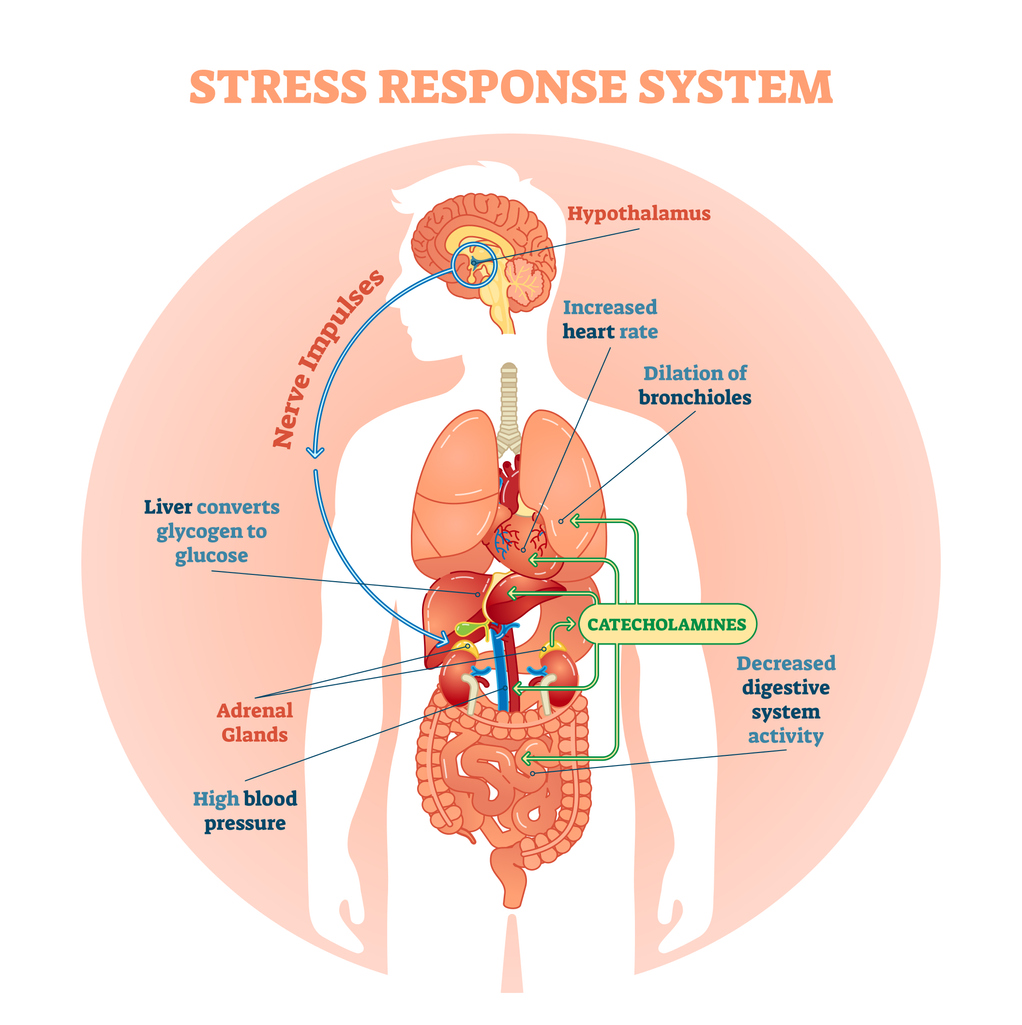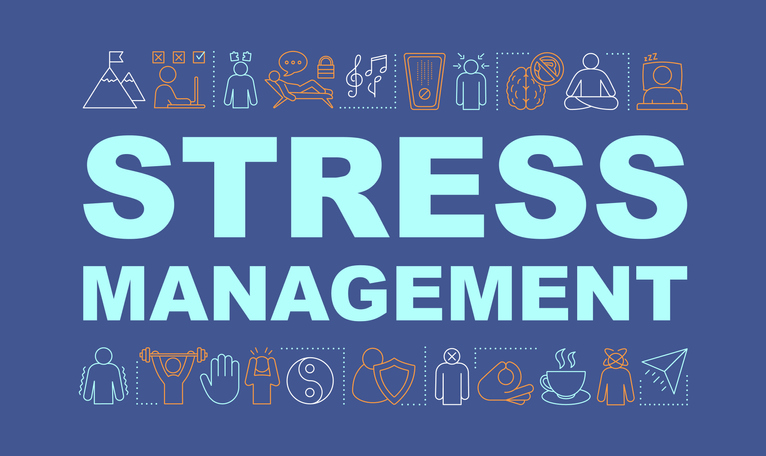Wellness
Effects of Stress on the Body

Stress can negatively affect overall health, especially when the stress is severe or chronic. Some effects stress can have on various body systems include the following:
Cardiovascular system
Stress increases heart rate and blood pressure and causes inflammation of the coronary arteries. This can lead to chest pain, heart disease, heart attack, or stroke.
Respiratory system
Stress can worsen certain lung conditions, such as asthma or emphysema. Acute stress can trigger an asthma attack.
Musculoskeletal system
When stress is experienced, the muscles often become tense to guard the body against injury and pain. This tension can cause muscle aches, headaches, migraines, lower back pain, shoulder pain or jaw pain. It can also lead to flare-ups of chronic health conditions, such as arthritis or fibromyalgia.
Gastrointestinal system
The digestive system contains millions of neurons that are in constant communication with the brain. Stress can alter this connection and cause a variety of gastrointestinal symptoms, such as pain, bloating, nausea, vomiting, gas, diarrhea or constipation. Stress can also worsen underlying health conditions, such as ulcers or irritable bowel syndrome. Appetite can also be affected (eating too much or too little).
Reproductive system
For females, stress can cause absent or irregular menstrual cycles and can affect the ability to conceive. For males, stress can affect testosterone production and can cause erectile dysfunction or impotence. For both genders, changes in sex drive and lower libido can occur.
Other possible health effects of chronic stress
- Fatigue
- Sleep issues, including insomnia
- Weakened immune system
- Worsening of skin conditions, such as eczema, rosacea or psoriasis
- High blood sugar
- Mental disorders, such as depression
- Development of chronic conditions such as chronic fatigue syndrome, diabetes, or immune system disorders.


















